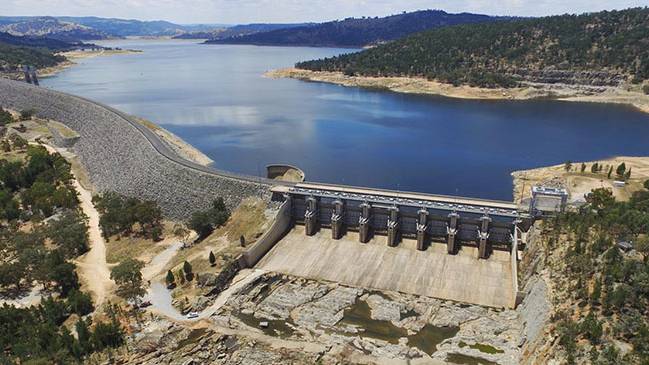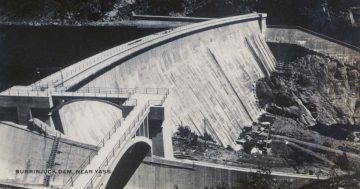
Wyangala Dam is situated between Cowra and Crookwell on the South West Slopes of NSW. Photo: Water NSW.
A parliamentary inquiry has questioned the value of raising the wall of the Wyangala Dam by 10 metres, saying no business case has been provided by the Government to justify the project.
The Upper House inquiry said the Government was yet to prove that raising the dam wall is a “cost-effective and sustainable solution” to addressing water security in the Lachlan Valley.
The inquiry, established to examine several new water infrastructure projects proposed by the NSW Government, criticised the Minister for Water Melinda Pavey for committing to the project in 2019 before completing a business case or environmental assessment.
“Two years later, we still don’t have either, yet many witnesses provided evidence that they assumed the dam was going ahead despite this,” inquiry chair and Greens party member Cate Faehrmann said.
The committee also included Animal Justice Party member Mark Pearson, Australian Labor Party members Mark Buttigieg and Penny Sharpe, Liberal Party members Catherine Cusack and Shayne Mallard, and Nationals member Ben Franklin.
After receiving 174 submissions, they published eight findings and four recommendations in the first part of their report into the rationale for, and impacts of, new dams and other water infrastructure in NSW.
The committee also said in its findings that raising the wall would only increase the dam’s water security by 21 gigalitres, not the 650 gigalitres the government claims.
“Wyangala Dam has only been full and spilled twice in the last 20 years, and climate change modelling has shown the dam may fill even less frequently than it historically has done,” Ms Faehrmann said.
“These facts make it difficult to see why this project has been pursued by the government as the most effective way of guaranteeing water security for the Lachlan Valley at the expense of other options.”
Ms Faehrmann said the government should have explored alternative options before giving the green light to a $650 million project which could cost double that – between $1.2 billion and $2.1 billion – documents released to the Greens show.
What’s more, the committee says raising the wall may have an impact on the Lachlan River’s ecology, including the floodplain and wetlands, various fish species and migratory birds.
The committee also claimed that Water NSW had not “sufficiently consulted local Aboriginal communities in the Lachlan region”, even though raising the wall “is likely to have a significant detrimental impact on Aboriginal cultural heritage sites and artefacts”.
The report recommended that the NSW Government address these concerns in its final business case and any environmental studies for raising Wyangala Dam’s wall.
“There is no doubt that there is a need to ensure reliable water supply for the Lachlan Valley, however, it became clear during the inquiry that it is yet to be demonstrated that this project is the best way of achieving this,” Ms Faehrmann said.
The NSW Government’s water infrastructure program was established in the context of the severe recent drought where towns in regional NSW were alarmingly close to running out of water and the ecological sustainability of riverine systems was under threat.
Water NSW maintains the project will go ahead as soon as it receives planning approvals with full construction slated to begin in October 2021.








